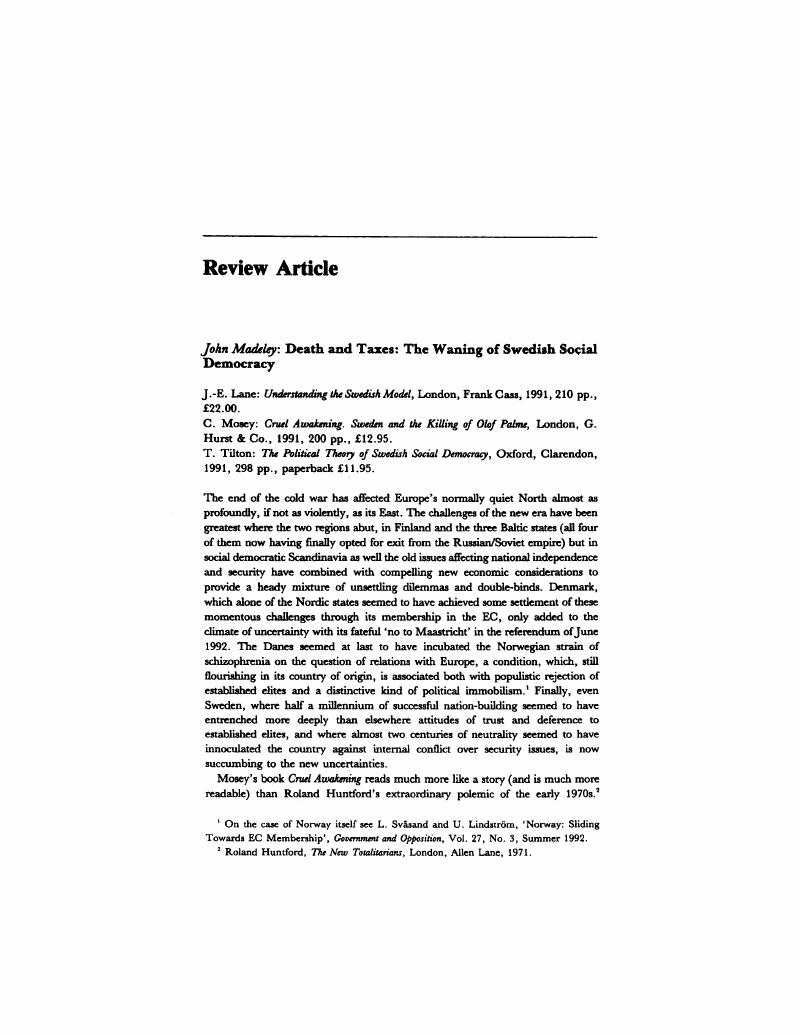Published online by Cambridge University Press: 28 March 2014

1 On the case of Norway itself see Sväsand, L. and Lindström, U., ‘Norway: Sliding Towards EC Membership’, Government and Opposition, Vol. 27, No. 3, Summer 1992.CrossRefGoogle Scholar
2 Huntford, Roland, The New Totalitarians, London, Allen Lane, 1971.Google Scholar
3 Thus Huntford, using language which seemed almost calculated to cause a diplomatic incident, claimed that ‘in all senses except the purely technological, [the Swede] is – extraordinarily backwar?’ (op. cit., p. 12) and described the history of Sweden since 1721 as ‘an unrelieved tale of capitulation’ (ibid., p. 31).
4 In the September 1991 election it recovered a little to take 37.6 per cent but this was still its worst showing since 1928.
5 As the Mosey volume indicates, this was almost thirty years to the day since Erlander had delivered a key speech written by Palme on precisely that theme (op. cit., pp. 92 – 3).
6 See Svåsand and Lindström, op. cit.
7 Only nine months into the life of the Bildt government however the Danish referendum result kicked off a Swedish debate over the EC which threatens to split the Centre and Christian Democrat parties as these parties' supporters register considerable ‘ami’ majorities at a time when their leaderships are otherwise committed and their membership of the government depends on their remaining so committed. It is clearly possible that these prodromal symptoms of the Norwegian disease augur a collapse of the Bildt coalition and a further demonstration of the chronic inability of Sweden's non‐socialists to hang together.
8 Insofar as the argument is made it also raises challenging questions about Swedish society and culture which Tilton does not pursue here, for example, whether or not questions of ideology are in fact treated with greater seriousness in Sweden or what it is about Sweden which makes socialist values more attractive than elsewhere. For all his polemical overkill, Huntford did in fact address questions of this sort, although for this author he neglected one underlying factor of obvious relevance – the nature of Lutheranism and its impact on a society which, however secularized, has been subjected to its pervasive influence for almost five hundred years.
9 Tilton does not actually say this but it can be inferred from his text (see chapter 8). He does however footnote one source which makes a contrary claim (p. 168).